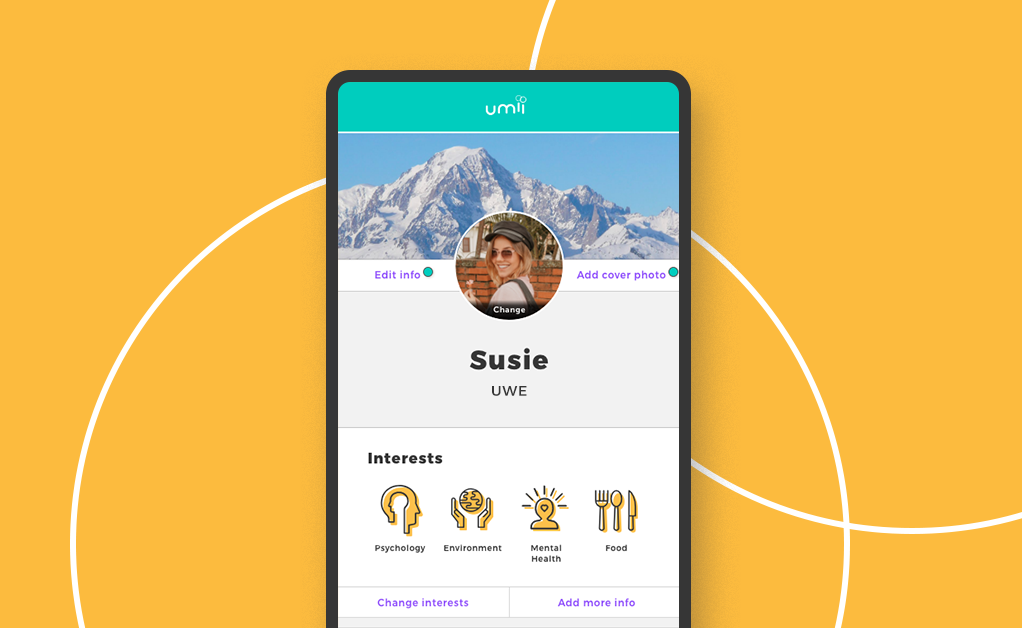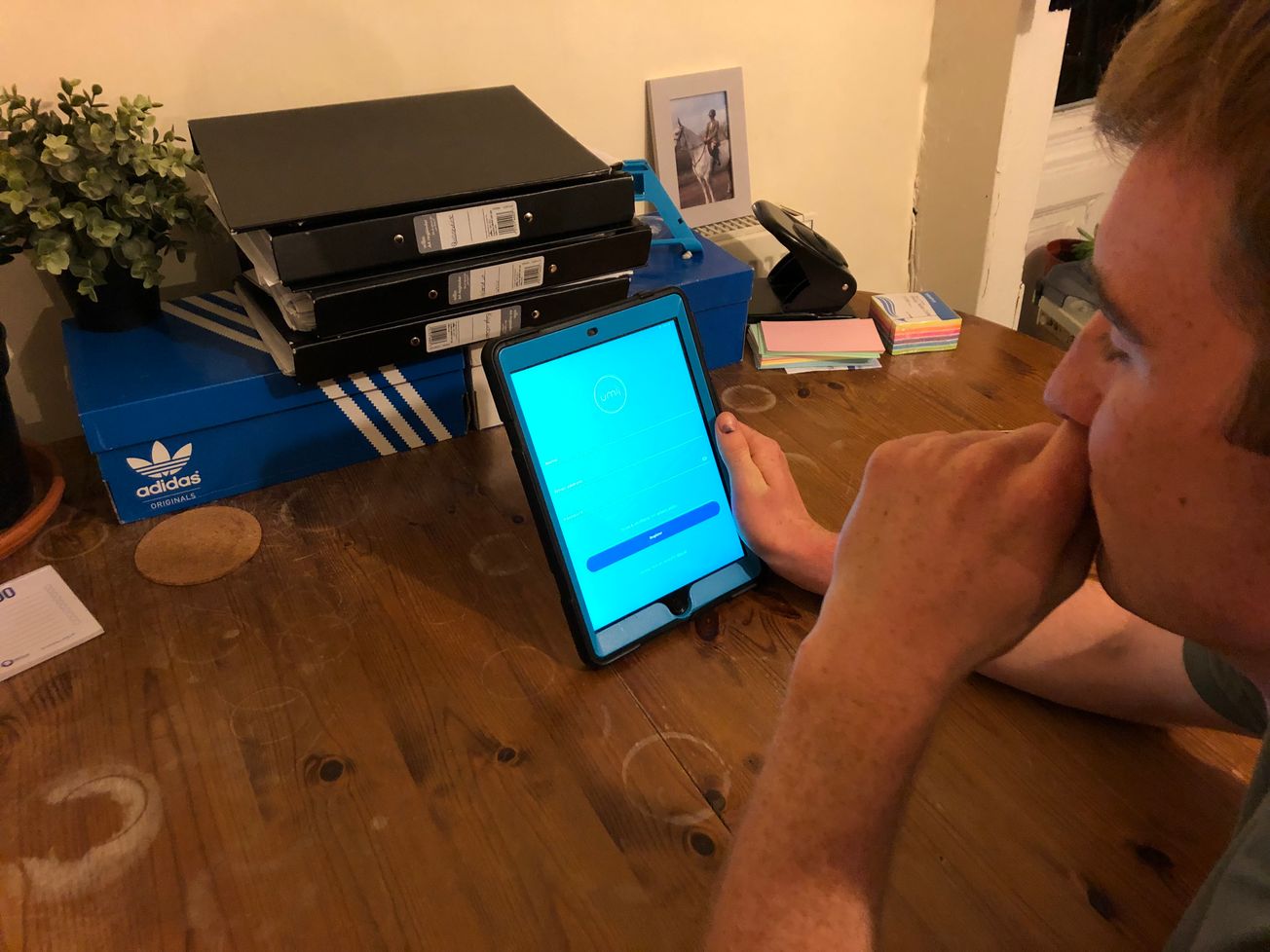By Patrick Sullivan, Co-Editor-in-Chief
Elliott Perks graduated from Edinburgh University only last year and is now on a mission to boost first interactions between students with Umii, the app he co-founded.
When I was first introduced - an e-introduction of course - to Elliott Perks, recent graduate and co-founder of Umii, he outlined his problem statement using three statistics: university dropout rates have increased three years in a row, 40 per cent of dropouts are because of social factors, and 78 per cent of students said they experienced a mental health issue in a NUS survey back in 2015. These statistics are why he started Umii alongside Horatio Palamountain last year during their final terms at Edinburgh and Exeter University respectively.
The concept is simple to grasp. The app is exclusively for university students and connects people based on their nuanced interests on campus. They specifically aim the app at new students to ‘aid the transition into university life by providing students with a peer-support network of like-minded others’. Everyday at 6pm, the app recommends ten people who match your interests before giving you 48 hours to start a conversation.

During his final year of an Ancient History degree in 2018, Elliott first started noticing the problems of isolation and disengagement within the university environment. Out of the 450 students Umii asked how often they meet a new person on campus, 60 per cent said ‘barely ever’ or ‘never’.
‘We want to increase the number of interactions between like-minded people at university, but also instil behavioural patterns that prevent isolation from occurring,’ Elliott said.
‘Without that first introduction ever taking place, such as in the library or cafe, there’s no form of meaningful friendship which can develop. That’s a large reason why we see isolation or loneliness be a cause of dropouts and mental health problems in first and second year. It is clear that when we’re most suited to help is right at the beginning of university when people just want to meet others and there’s nothing really on offer in a digital sense
‘Obviously you’ve got Facebook and 74 per cent of new students try to reach out to another student there, just to find anyone they can know before they start, but Facebook groups are set up by club promoters and other third parties looking to take advantage of students. We think this is the best time the university could provide a digital means for students to connect because they're calling out for it. 80 per cent thought their university should be providing them a way to connect before starting. No university is currently doing it. It's a pretty simple fix, which could make a massive difference.
If you start University already talking to people in the same position as you, chatted with them, know more about them and what they're interested in - more than just their Facebook profile picture - you're likely to feel settled a lot quicker. Elliot Perks
The clarity with which Elliott talks about the situation, you would think every University would take Umii up on the offer to work closely together on developing the solution. That has not necessarily been the case. The start-up has a new, exciting partnership with the University of West of England (UWE) but the University of Bristol are one of the many universities from who they have received little response.
Elliott and his team reached out to every university in the UK and ‘only had conversations with just over half’. That number is reduced further for universities Umii are now partnered with. The app was launched at Nottingham Trent University in January this year and also has links with University of Liverpool, London Met, and University of Buckingham. For each university, they recognise the campus differences and tailor the app, for example adding specific halls, to maximise the success of any friendship matches.

‘No university ever wants to be the first one to make a move,’ Elliott said of their struggles to secure formal commitments. Every University has tried some kind of app or digital platform that's gone badly, especially made by recent grads that they're hesitant to try something new. The actual person who works at a university might just not be bothered to try it, even if you give it to them for free. That's why UWE is great, because they're obviously looking to try new things, which is really important given the problems they have had in recent years with student mental health.
‘I think universities notice the problems. Some have reservations around students getting confused with too many apps or digital platforms on offer. These are funny because when you speak to students, they say the exact opposite. They've grown up in a world where they understand that you're going to have hundreds of apps on your phone.
There's a disparity between what the students think is good and what the university thinks is good.Elliot Perks
‘When you speak to Students’ Unions, who talk more to the students directly and are often recent students themselves, they think, “This is great!” That's all well and good, but it's got to be run through the university, and they might have a 50 year old staff member who doesn’t think it will work. To them, I say: go talk to your students and find out because when you do, I think you'll get a different response.
‘I think one thing that's been good over the past few years is universities being more open to looking at third party solutions, instead of trying to fix everything in house, because they're just not going to have the staff to do it, or the sort of expertise, they can't be great in every department. Yeah. There's been a rise of companies like Big White Wall and mental health platforms that enable students to get counseling online or to speed up speaking anonymously about the troubles they're going through.’
The way the app works certainly will not be confusing to students, as it will be familiar to those who have used dating equivalents minus the swiping. While Umii’s algorithm is bespoke for friendships and there is a greater focus on specific interests rather than pictures, the 48 hour first message deadline is a similar tactic to Bumble, which also has a setting for finding friends as well as romance.
Lucky to be working with the #student app, Umii, at the moment (think Tinder for your social life!). And although the student market is definitely competitive, it’s been a whole lotta fun.🍹💃
— Mariel Rubinstein (@MazzaRuby) August 23, 2018
Learn more at: https://t.co/e87YhdjL1y pic.twitter.com/o4syoiipIL
‘[Society has] looked at using apps for dating, and it's taken off and obviously works. To take it to the platonic sense, it's something that hasn’t been successful. I think one of the problems is that the idea of meeting someone via an app is so heavily linked to dating now. And then dating apps try to push platonic means which can ruin the idea [by associating it with the same space as non-platonic interactions]. I think it's actually the style of the future for how people will meet.’
I point out to Elliott that his proposed solution also contributes to causing a lack of first interactions: mobile phones. Can a digital product really help satisfy our craving for human engagement?
‘We can’t deny the fact that this is the way life is now,’ he responds. ‘It’s easier and more natural now to hide behind your phone than spark a conversation with the person next to you. That doesn't mean that phones can't bring back those norms. I think they're a great tool.
‘I think it's a modern reaction to the modern way of starting university. People are now going online to try and meet other people before Freshers’ Week. They're using Facebook, they're using tools that aren't great, but it's all they've got an offer. It could be done way better through that's specific for students [like Umii]. If you can create a culture of like-minded students meeting right at the beginning and provide a very simple digital solution for it, then you can normalise behavioural patterns, increase those interactions, and prevent isolation.’
Featured: Epigram / Tom Woodruffe
Used Umii before? Let us know your thoughts on the app in the comments!









